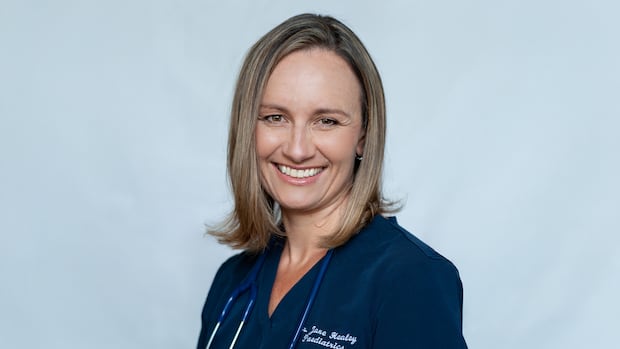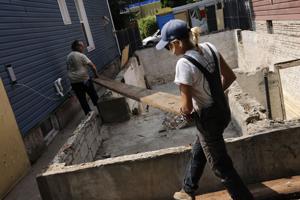Top Stories
Doctor Works 10 Days Without Pay for Dying Baby Amid OHIP Crisis

UPDATE: A Toronto-area doctor, Dr. Jane Healey, has revealed her heartbreaking decision to work 10 days without pay while caring for a dying newborn after her OHIP claim was rejected. This urgent situation highlights ongoing billing issues in Ontario’s healthcare system that are affecting doctors and their patients.
Dr. Healey faced a gut-wrenching choice: either ask the grieving parents of the newborn to navigate the bureaucracy of Service Ontario or forgo her compensation. Ultimately, she chose not to burden the family during their time of unimaginable loss. “That means that we aren’t remunerated for some of that very difficult, highly emotional work that stays with you,” she told CBC Toronto.
This incident underscores a growing crisis as Ontario physicians grapple with over 1.16 million rejected claims annually from a total of 200 million processed claims. The Ontario Medical Association (OMA) is advocating for immediate reforms as negotiations over a new compensation deal with the province intensify. An arbitrator has ordered both sides to expedite solutions around these billing issues.
Health Minister Sylvia Jones‘s spokesperson, Ema Popovic, stated that more than 99 percent of claims are successfully paid as submitted, reflecting the system’s overall productivity. However, Dr. Zainab Abdurrahman, OMA president, warns that complex claims, especially those involving multiple procedures, are often delayed, discouraging doctors from pursuing innovative treatments.
“Doctors are left thinking, ‘I’m going to have to fight to prove that I already did this work,’” Abdurrahman said. This sentiment resonates deeply among practitioners, particularly in light of the emotional toll of caring for vulnerable patients.
Currently, the Ontario government is urged to revive the good-faith payment system, allowing physicians to bill for uninsured patients, such as newborns or critically ill individuals without insurance. The OMA is also calling for the establishment of an OHIP ombudsman office staffed with clinical experts to streamline and improve the manual review process that often prolongs payments.
In a recent development that could change the landscape of healthcare provision, the provincial government is already working on initiatives to reduce administrative burdens on doctors. However, Popovic expressed disappointment that the OMA is focusing on less than 1 percent of claims requiring manual review, rather than recognizing the progress made to support healthcare providers.
As the clock ticks toward a potential arbitration if the OMA and the province cannot find common ground by the new year, the situation remains fluid. The urgency of resolving these billing issues is critical, as Ontario’s healthcare system stands at a crossroads, impacting not just doctors, but also the vulnerable patients they serve.
For now, the medical community is watching closely, as the outcome of these negotiations could have profound implications for the future of patient care in Ontario.
-

 World4 months ago
World4 months agoScientists Unearth Ancient Antarctic Ice to Unlock Climate Secrets
-

 Entertainment4 months ago
Entertainment4 months agoTrump and McCormick to Announce $70 Billion Energy Investments
-

 Lifestyle4 months ago
Lifestyle4 months agoTransLink Launches Food Truck Program to Boost Revenue in Vancouver
-

 Science4 months ago
Science4 months agoFour Astronauts Return to Earth After International Space Station Mission
-

 Technology2 months ago
Technology2 months agoApple Notes Enhances Functionality with Markdown Support in macOS 26
-

 Top Stories3 weeks ago
Top Stories3 weeks agoUrgent Update: Fatal Crash on Highway 99 Claims Life of Pitt Meadows Man
-

 Sports4 months ago
Sports4 months agoSearch Underway for Missing Hunter Amid Hokkaido Bear Emergency
-

 Politics3 months ago
Politics3 months agoUkrainian Tennis Star Elina Svitolina Faces Death Threats Online
-

 Politics4 months ago
Politics4 months agoCarney Engages First Nations Leaders at Development Law Summit
-

 Technology4 months ago
Technology4 months agoFrosthaven Launches Early Access on July 31, 2025
-

 Top Stories1 week ago
Top Stories1 week agoFamily Remembers Beverley Rowbotham 25 Years After Murder
-

 Entertainment4 months ago
Entertainment4 months agoCalgary Theatre Troupe Revives Magic at Winnipeg Fringe Festival




















